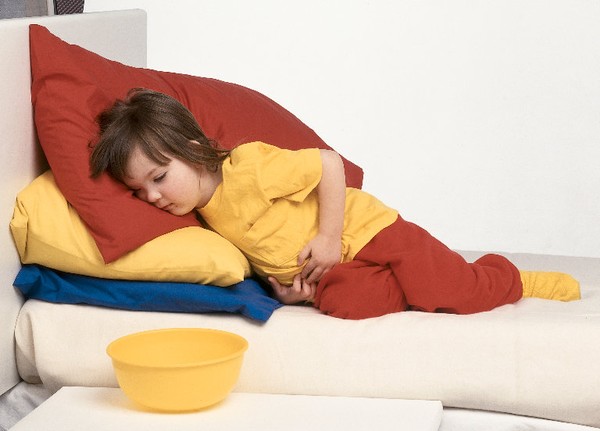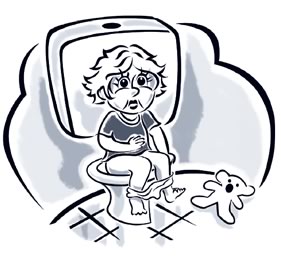|
This page requires
Adobe Flash Player 9.0 (or higher). |
||
|
|
||
|
Gastroenteritis
Clear fluids should be consumed for the first 24 hours, then gradually progress the diet as tolerated. Clear fluids are anything you can see through. Popsicles and jell-o work well, since they are ingested slowly. Drinking too much fluid too quickly will distend the stomach and worsen the nausea.
For dehydration in children, they should be given oral re-hydration solutions such as Pedialyte, Rehydrate, Resol, and Rice-Lyte. They contain a good balance of electrolytes that allow better absorption in the stomach than water alone. As well, re-hydration with plain water can affect the sodium concentration in the body and lead to seizures.
Dehydration in adults Although adults and adolescents have a larger electrolyte reserve than children, electrolyte imbalance and dehydration may still occur as fluid is lost through vomiting and diarrhea. Severe symptoms and dehydration usually develop as complications of medication use or chronic diseases such as diabetes or kidney failure, however, symptoms may occur in healthy people.
Medical TreatmentUpon seeking medical attention, if the patient cannot take fluids by mouth because of vomiting, the doctor may insert an IV to put fluid back into the body (re-hydration). In infants, depending upon the level of dehydration, intravenous fluids may be delayed to consider trying oral re-hydration therapy. Frequent feedings, as small as a 1/6 ounce (5cc) at a time, may be used to restore hydration. |
||
|
|
||
 The mainstay of home
treatment of gastroenteritis is hydration. Dehydration will make the symptoms
of nausea and vomiting worse and compound symptoms.
The mainstay of home
treatment of gastroenteritis is hydration. Dehydration will make the symptoms
of nausea and vomiting worse and compound symptoms. Dehydration in children
Dehydration in children